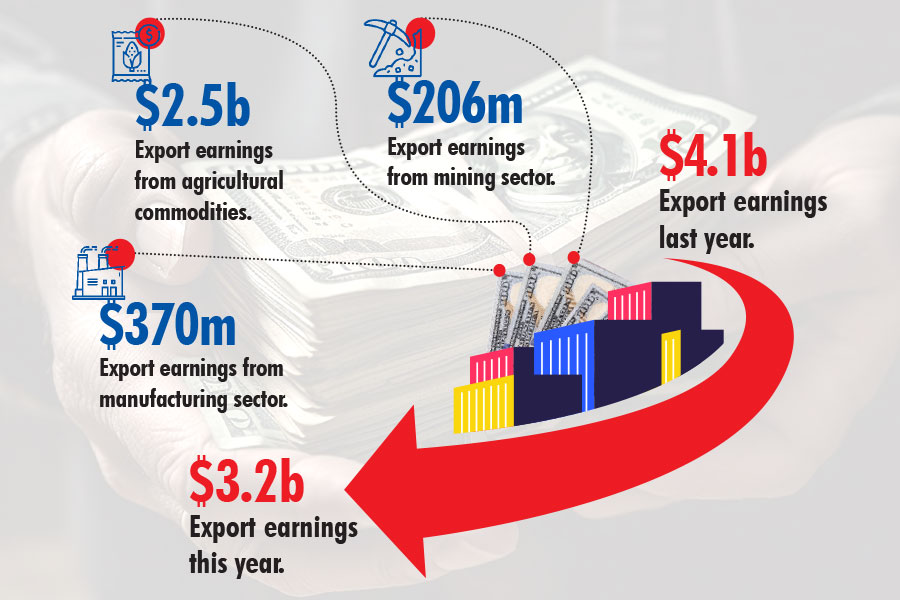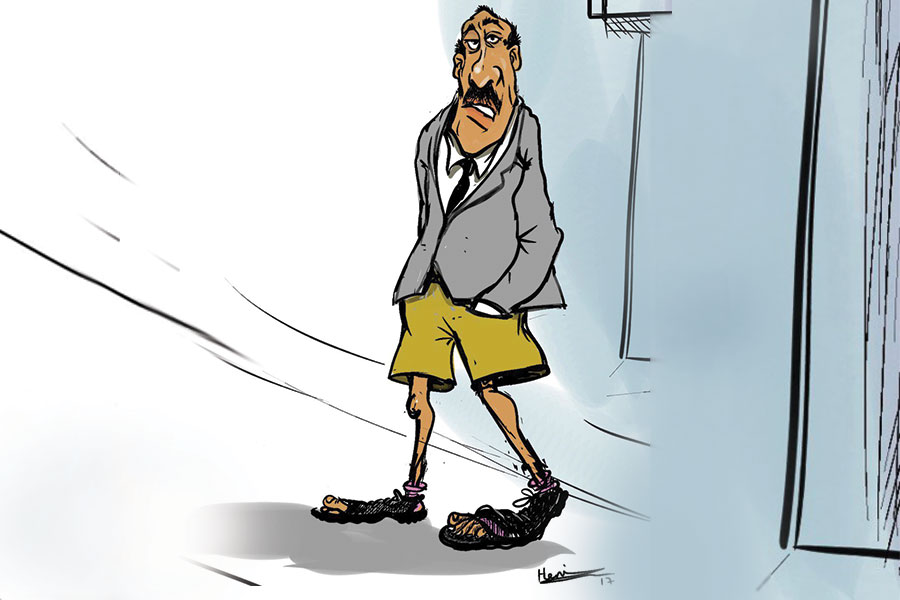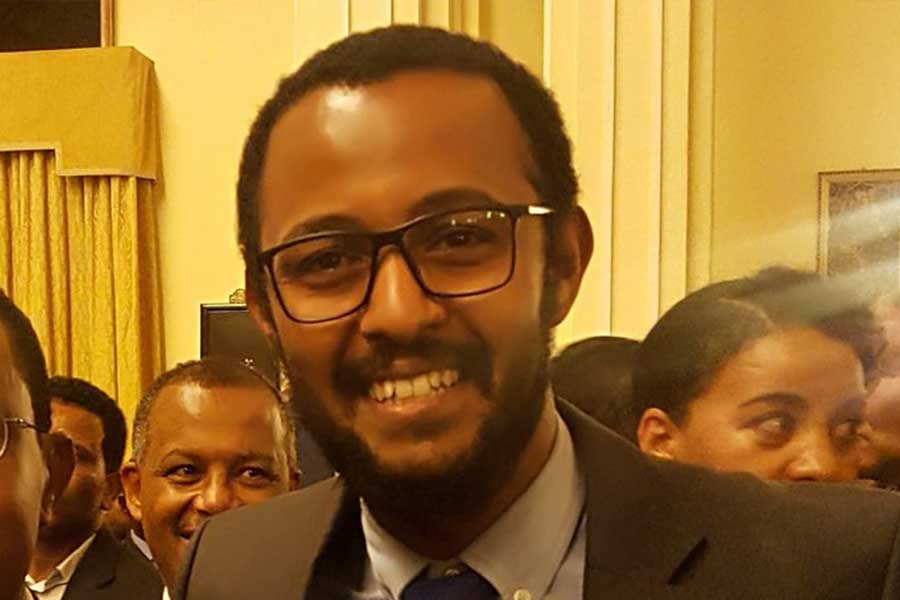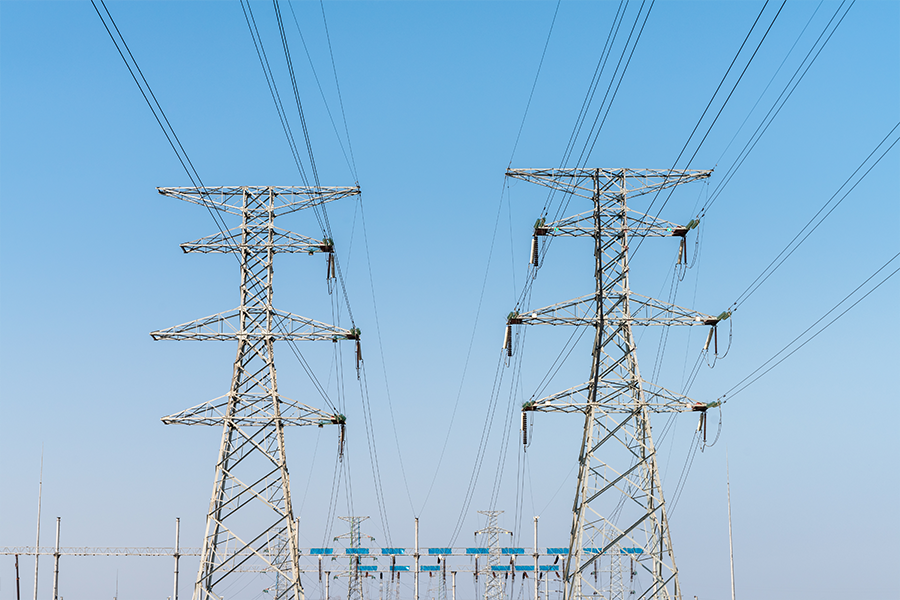
Fortune News | Jul 01,2023
Sep 11 , 2020.
It is self-evident. Addis Abeba has once again begun to feel alive. With the expiration of the state of emergency, bars and restaurants are fuller, cinemas have resumed business, and minibuses are once again loaded to their full capacity.
The current atmosphere is more than just a consequence of an end to the five-month national emergency decree. Colourful street lights adorn many parts of the city centre, and speakers blare New Year holiday rhythms. The city is noisier and more upbeat than it has been since the first case of the Novel Coronavirus (COVID-19) pandemic was reported in March 2020. It is an even further cry from the gloomy undertone that attended the first few weeks of the passing of Hachalu Hundessa, a popular musician and activist.
What changed?
In part, it could be in response to the increasingly positive image of the country the administration of Prime Minister Abiy Ahmed (PhD) has come to push. The star of the show in this re-enforced attempt to put a glorious spin on the state of the country is the Beautifying Sheger project.
Conceptualised at least as far back as the Dergue, and undergoing a public bid process until 2018 as a redevelopment project, it was significantly re-imagined by the Prime Minister. Credit here is warranted, for the results and the speed of delivery of the project have been nothing but impressive.
There is an outcry over whether such a revamp is a priority in a country where there is so much deprivation. After all, no less than 20.9 million Ethiopians need emergency humanitarian assistance, which requires 1.7 billion dollars to pay for, according to the United Nations.
Nonetheless, few have criticised this project located a few metres from the Prime Minister's residence on its own terms. Consequently, the aesthetic of the administration's darling project has come to fill, to an extent, the country's popular imagination.
But it does not stop with the Sheger project. A glance at public officials’ social media feeds shows emphasis on unity, forgiveness and togetherness, not to mention quotes declaring the country will yet prosper and “ascend to prestige.” Prime Minister Abiy tweeted the latter over a short video showcasing Sheger Park, inaugurated on September 10, 2020.
Beneath the surface, what is developing across the country should be worrying.
Addis Abeba is under high-security presence, with pedestrians and vehicles regularly getting searched in many parts of the city. Even the inauguration of Sheger Park was attended by a show of parade by those in uniform, where sniper rifles and riot gear were on display. Reminiscent of an era from the Marxist military regime under Mengistu Hailemariam (Col.), it was a strange compliment to the inauguration of a public park.
The visible presence of security forces is a manifestation of the uneasy calm that currently hovers over the country. The discontent in various parts of the Oromia Regional State since the assassination of Hachalu and the subsequent arrests of over 9,000 people, including prominent political figures, remains relentless. It has been met with violent clampdowns that resulted in the deaths of many. The demand for regional status by citizens in the Welaita Zone claimed the lives of over 15 people after law enforcement used lethal force, unnecessarily, according to Amnesty International.
The most worrying of all these should be the elections that took place in the Tigray Regional State last week, even though the House of Federation declared it "unconstitutional" in its undertaking and as it says the outcome is "illegitimate." It has also been faced by strong opposition from the Prime Minister and officials of the ruling Prosperity Party (PP). Regardless, over 2.5 million people have voted to elect representatives for the regional legislative council.
If any consolation can be found in this, it is in the Prime Minister’s repeated commitment - in public - that force will not be resorted to in dealing with the refractory Tigray Regional State. Indeed, the fact that such pledges have to be made, coupled with the regional government’s show of force before the elections, are indications of how alarming the current political situation is. The possibility of violent conflict should have been a remote possibility, no matter the differences of view between the federal government and the Regional State.
The incumbent political forces and their leaders in the other regional states appear to show signs of moving in tandem with Arat Kilo. The same cannot be said for the political opposition. Some of the notable leaders are behind bars, and their die-hard supporters overseas are nothing less than militant. They have been calling for anti-government protests in Ethiopia, though there has not been a significant outbreak in the regions other than in the Oromia and southern regional states.
Even the Ethiopian Citizens for Social Justice (Ezema), a party mostly seen as a moderate opposition group, has been unhappy with the state of affairs in the capital. It accused those in charge of the Addis Abeba City Administration of land grabs and breaking public trust, transferring condominium units initially built for those who were registered and had saved their money. It was a loud cry followed up by the National Movement of Amhara (NAMA), which demanded transparency and accountability in the expenditure and contract administrations of the many projects ongoing in the capital.
It appears that a tale is in the making of two faces of a country. One, mainly Addis Abeba-centric, tells a story of vitality, high ambitions and optimism. The other is bleak and warns of state fragmentation that threatens to become violent.
No doubt, the latter has been on the minds of Ethiopians for at least five years. It was a time of massive internal displacements - over three million victims of this in 2018 - conflicts that led to the loss of lives and property and high profile deaths. It has been a traumatic couple of years.
When reality is this dismal, and in contradiction of perception, citizens may begin to prefer to live in make-believe. By paying attention selectively, an exhausted public may buy into a calming narrative that also happens to be spun aggressively. It is only human to seek a modicum of certainty and stability in a country that has been racked by political volatility.
Still, images are only that - images. At best, they may help to address symptoms, such as conflicts and the breakdown of law and order. A focus on the symptoms, instead of the source of the sickness, has been a preferred tactic of previous regimes and administrations.
The administration of Prime Minister Abiy may see it fit to portray the continuation of uneasy calm through a combination of the use of security and prosecutorial bodies. It would still be putting lipstick on a pig. The use of resources for the control of the narrative that presents an image of a country that is on the right track can only work against the interests of the country, long-term.
In failing to take on the challenging issues head-on, through a process where all players are empowered to check the behaviour and actions of those with state power, legitimate calls and causes become undermined. They will be pushed to the underground, radicalised and emerge later on as disruptive socio-political unravelling forces. Such is the outcome of a state that will be different things to different groups of people.
It is wise and constructive to begin a process of engagement to forge a standard view of a shared state, with its systems, laws and institutions agreed upon. As the European Union called for last week, such an agreement requires a political settlement through an all-inclusive and comprehensive dialogue.
PUBLISHED ON
Sep 11,2020 [ VOL
21 , NO
1063]

Fortune News | Jul 01,2023

Fortune News | Oct 23,2021

Editorial | Aug 09,2025

Fortune News | Jul 18,2020

Radar | Oct 09,2021

Radar | Dec 12,2023

Radar | Jan 25,2020

Radar | Jan 07,2023

Commentaries | Mar 26,2022

Fortune News | Mar 18,2023

Photo Gallery | 178841 Views | May 06,2019

Photo Gallery | 169040 Views | Apr 26,2019

Photo Gallery | 159892 Views | Oct 06,2021

My Opinion | 137118 Views | Aug 14,2021

Dec 22 , 2024 . By TIZITA SHEWAFERAW
Charged with transforming colossal state-owned enterprises into modern and competitiv...

Aug 18 , 2024 . By AKSAH ITALO
Although predictable Yonas Zerihun's job in the ride-hailing service is not immune to...

Jul 28 , 2024 . By TIZITA SHEWAFERAW
Unhabitual, perhaps too many, Samuel Gebreyohannes, 38, used to occasionally enjoy a couple of beers at breakfast. However, he recently swit...

Jul 13 , 2024 . By AKSAH ITALO
Investors who rely on tractors, trucks, and field vehicles for commuting, transporting commodities, and f...

Oct 25 , 2025 . By YITBAREK GETACHEW
Officials of the Addis Abeba's Education Bureau have embarked on an ambitious experim...

Oct 26 , 2025 . By YITBAREK GETACHEW
The federal government is making a landmark shift in its investment incentive regime...

Oct 29 , 2025 . By NAHOM AYELE
The National Bank of Ethiopia (NBE) is preparing to issue a directive that will funda...

Oct 26 , 2025 . By SURAFEL MULUGETA
A community of booksellers shadowing the Ethiopian National Theatre has been jolted b...